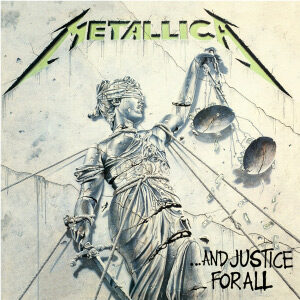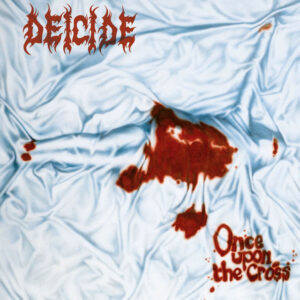 Do not buy this
Do not buy this
The title cannot be reiterated enough – even if you like the teaser material for this album, under no circumstances should you buy it from the label. It’s the work of a man who pulled the rug from underneath a genuine artist’s feet to make a cash-grab, and it should not be supported in any way. Bart here may have the legal basis for carrying on with the name, but that certainly doesn’t make him the honest actor in the drama surrounding this album. Should anyone think I’m being unfair by being prejudiced against this release for the drama and not solely focusing on the music, all I have to say is that bringing this external drama up is necessary in judging the album as it would not exist without the drama and like any album its contents have been affected by the context it was constructed in. It’s a lazy cash-grab that truly sounds like just that – it’s a cobbled together load of rubbish that bears no meaningful resemblance to anything approaching a Batushka album.
The common thread that runs throughout is that the material is entirely derivative, lacking any identity or memorability. There is not an original bone in this album’s body; its boldest idea is the mix of choral and harsh vocals, which are ripped off from Litourgiya. The guitarwork is taken from a few sources of inspiration – the astonishingly crappy groove riffs and chugs that pop up from time to time being one example. The unending tremolo throughout the songs makes a lot of the guitarwork here sound like cast off/riffless Nightbringer or Litourgiya material. There are also some references to less riffy symphonic black metal acts, and there are some thrashier riffs at points, most notably on the track ‘Utrenia’ but it’s mostly tremolo-heavy, riffless fluff. Overall Hospodi listens like the work of a coattail riding second-string band with no identity of its own that apes a bunch of different sounds, one of which happens to be Litourgiya. For the most part this doesn’t listen like a Batushka album at all, or a development from Litourgiya, though clearly the band is trying hard to evoke its atmosphere and aesthetics with some very surface-level and forced references to it musically.
Another common factor in the material is that it is almost entirely mid-paced. The band never really picks up the pace or slows down to a drudging crawl; they’re entirely content to sit at a very uniform ‘not really fast but not really slow’ tempo. By doing this the music is erased of any potential points of contrast – there is no chance for a crushing, doom-like passage or a much faster, blast-filled section here. Variation in tempo is not a must for good music but with music this shallow the last thing it needs is to have another layer of potential variation stripped from it. It makes the music even more flat than it would have been, as there is no attempt to alter the mood using the tempo.
Making matters worse is that the songwriting is abysmal. Many of the songs here feature big stretches devoted to building up to something, usually in the form of tremolo and chords atop of double bass and choral vocals borrowed from Litourgiya. The first problem with this is that these build-ups lead to absolutely nothing – in place of climaxes the band routinely delivers an anti-climax in the form of a weak groovy/chugging/slower riff or quiet sections with faint choral vocals and guitars ringing in the background. This has the effect of making the songs feel like parts of the cutting room floor stapled together in the same way over and over again, as opposed to pieces that were actually written as one from start to finish. The second is that the band simply cannot find a way to increase the intensity of their music beyond making it louder with more tremolo, more choral vocals, and more double bass. The music never actually feels more aggressive during these moments, and as a result the buildups that the band spend so much time doing don’t even feel like they’re building up to anything, they listen more like an idea stretched far past the point of being remotely fresh. Tracks will start and end at seemingly arbitrary points, as it feels as if there is no reason why something is happening within them. The tracks don’t build up to anything meaningful, they don’t end in a satisfying way and taken as a whole they don’t even flow properly or feel like a complete journey. This is just about every track on the album, with only ‘Powieczerje’ and ‘Polunosznica’ really feeling like they were written with any care or attention paid to them.
The uniform tempo and equally uniform (lack of) songwriting highlights the next big issue with the album, which is that it is unbelievably copy-paste and very short on ideas. Once you’ve heard one song here you’ve basically heard them all, as the band has nothing to offer beyond rejected Litourgiya non-riffs, Eastern Orthodox-inspired choral vocals, one style of black metal rasp and some utterly flat meandering passages that give way to anti-climactic points, all at one tempo. Ideas get drawn out to the point of becoming stale within songs as the band clearly have no idea how to develop these ideas, and across the album the same tropes get repeated over and over meaning that songs will bleed together as the album wears on and the listener’s mind wanders as they wait for a song to end. Needless to say the songs are far, far too long for how flat and musically bankrupt they really are, and just a few tracks in you’ll be reaching for the pause button. This kills the atmosphere the band spend so much time trying to evoke, and while listening you’ll struggle to feel anything from the music because nothing about its composition or substance is inspiring enough to do that.
This is a miserable failure of a release. It’s obvious when listening who the brains behind Litourgiya was – sure that release was flawed but the regression displayed here is stunning. What few ideas the music presents are inferior copies of other people’s work that then get drawn out to oblivion across every song and the album as a whole. On top of all of this, there is no reason for it to exist beyond cashing in on the clout of an idea that wasn’t Bart’s at all. If you want a new Batushka album, go and buy Панихида, and stay miles away from this, because it’s a waste of time for anybody who chooses to listen to it. This is nothing but an effortless cash-grab; a lazy work that was cobbled together to get another release with the Batushka name on it out of the door. It’s vapid, shallow, soulless and thoroughly devoid of anything interesting.
It’s an embarrassment.
Rating: 13%
 Re-opening the vault
Re-opening the vault Hey, it could be worse
Hey, it could be worse Silence means death
Silence means death Death metal’s Greta Van Fleet
Death metal’s Greta Van Fleet Snore
Snore Mechanical, yet human, fury
Mechanical, yet human, fury Stop it
Stop it Much, much less than the sum of its parts
Much, much less than the sum of its parts ‘Fire as far as the eyes can see’
‘Fire as far as the eyes can see’